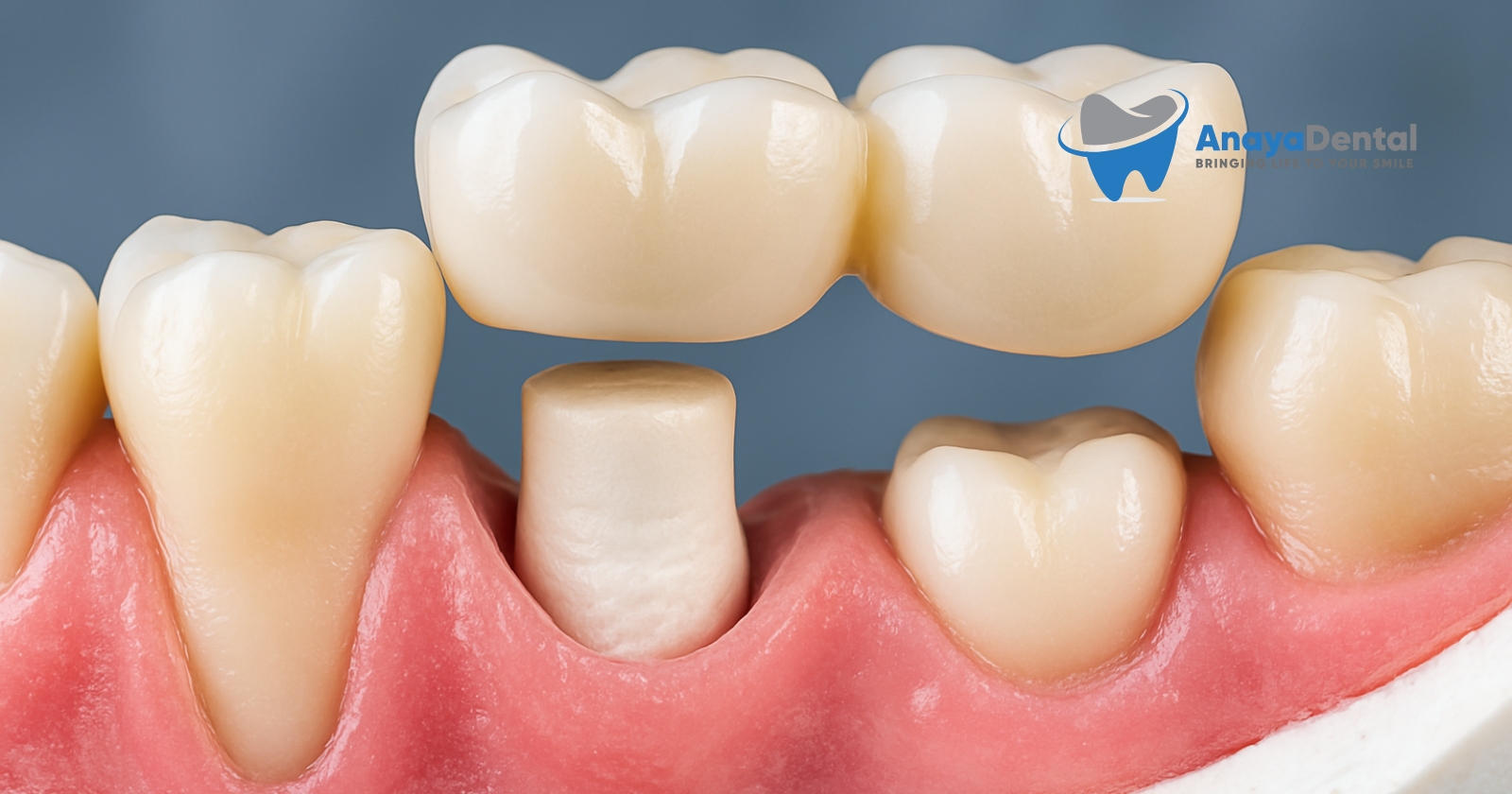How You Can Afford a D2161 Dental Filling: Managing Costs for Complex Amalgam Restorations
When your dentist diagnoses extensive decay affecting four or more surfaces of your tooth, they’ll likely recommend a D2161 procedure. This complex restoration requires special consideration for both treatment planning and financial preparation.
What Is a D2161 Dental Filling?
A D2161 code represents an amalgam filling that restores four or more surfaces of either a primary (baby) or permanent tooth. Amalgam fillings are silver-colored restorations composed of a mixture of metals including silver, tin, copper, and mercury.
The “four or more surfaces” designation indicates decay has affected at least four distinct areas of your tooth—such as the top (occlusal) surface and three sides (buccal, lingual, mesial, or distal). This makes the D2161 procedure the most extensive amalgam filling possible before more comprehensive treatments like crowns become necessary.
Try Our Dental Calculators
Medical Context: When Is a D2161 Procedure Necessary?
Dentists recommend four-or-more-surface amalgam fillings when:
- Extensive decay has compromised multiple surfaces of the tooth
- Significant trauma or fractures have damaged several areas
- Multiple previous fillings have failed and need comprehensive replacement
- Substantial structural reinforcement is needed for a severely weakened tooth
Four-surface amalgam fillings demonstrate approximately a 75% success rate over 7 years when properly placed and maintained, though many dentists consider alternative restorations for teeth with such extensive damage.
Average Costs for D2161 Amalgam Fillings
Four-or-more-surface fillings represent the most complex amalgam restorations with costs reflecting:
- Maximum amount of amalgam material required
- Highest level of technical preparation difficulty
- Extended chair time for proper placement and finishing
Here’s what you can expect to pay:
| Payment Scenario | Cost Range |
|---|---|
| Without insurance | $210-$425 per filling |
| With insurance coverage | $42-$170 (20-40% of total cost) |
| Dental school clinic | $105-$180 |
Amalgam fillings typically cost about 30-35% less than comparable composite (tooth-colored) fillings of the same size and complexity.
Insurance Coverage Options for D2161 Procedures
Traditional Dental Insurance
Most dental plans categorize D2161 amalgam fillings as major restorative procedures with coverage typically structured as:
- 70-80% coverage for premium dental plans after deductible
- 50-60% coverage with standard dental insurance
- 40-50% coverage with basic dental plans
Important coverage limitations to note:
- Many plans impose a 6-12 month waiting period for major restorative procedures
- Annual coverage maximums (typically $1,000-$1,500)
- Pre-authorization is often required for D2161 procedures
- Some insurers may suggest alternative treatments like crowns instead
Dental Discount Plans
For those without traditional insurance, discount plans offer an alternative approach:
- Annual membership fees ranging from $100-$200
- Provide 15-40% discounts on D2161 procedures
- No waiting periods in most cases
- No annual maximums or pre-authorization requirements
Government Programs
Public assistance programs may provide coverage for complex amalgam fillings:
- Medicaid: Coverage varies significantly by state but may include necessary fillings for children and limited adult coverage
- CHIP: Provides dental coverage for qualifying children, including amalgam fillings
- Medicare: Generally doesn’t cover routine dental procedures without connection to a covered medical condition
Payment Options When Insurance Isn’t Enough
Dental Office Payment Plans
Many dental practices offer flexible payment arrangements for complex procedures:
- Interest-free payment plans for 3-12 months
- Options with minimal or no credit checks
- Monthly payments spread across the treatment timeline
Healthcare Credit Cards
Specialized healthcare financing options offer:
- Promotional 0% interest periods (typically 6-24 months)
- Ability to cover multiple procedures with one credit line
- Important caution: Interest rates of 20-26% apply if not paid off during promotional period
Dental Schools
Receiving treatment at an accredited dental school provides:
- Savings of 40-60% compared to private practice rates
- Treatment performed by dental students under close faculty supervision
- Longer appointment times but significantly reduced costs
D2161 vs. Other Amalgam Fillings: A Complete Comparison
Understanding how four-or-more-surface fillings differ from smaller restorations helps clarify cost differences:
| Aspect | D2140 (One Surface) | D2150 (Two Surfaces) | D2160 (Three Surfaces) | D2161 (Four+ Surfaces) |
|---|---|---|---|---|
| Average cost | $110-$275 | $150-$325 | $185-$375 | $210-$425 |
| Procedure time | 30-45 minutes | 45-60 minutes | 60-75 minutes | 75-90+ minutes |
| Material amount | Minimal | Moderate | Substantial | Maximum |
| Complexity | Low | Medium | High | Very High |
| Tooth strength impact | Minimal reduction | Moderate reduction | Significant reduction | Severe reduction |
When to Consider Alternatives to a D2161 Filling
When four or more surfaces of a tooth require restoration, many dental professionals recommend considering alternative treatments:
- Dental onlays: Partial crowns that provide better protection for severely compromised teeth
- Full crowns: Complete coverage for teeth with extensive damage across multiple surfaces
- Root canal therapy with crown: Often necessary if decay is deep enough to approach the pulp
For teeth with four-or-more-surface damage, the failure rate for amalgam fillings may reach 25-30% within 7 years, compared to just 10-15% for crowns over the same period.
Preventive Measures to Avoid Future D2161 Procedures
Preventing the need for extensive four-or-more-surface fillings is especially important for maintaining tooth structure and avoiding more costly treatments:
- Quarterly dental checkups for high-risk patients can catch decay before it spreads extensively
- Prescription-strength fluoride products provide additional protection for at-risk teeth
- Dental sealants can prevent decay on vulnerable chewing surfaces
- Addressing dry mouth conditions which significantly increase decay risk
- Prompt treatment of smaller cavities prevents progression to multi-surface decay
Quick Review
- D2161 represents an amalgam filling covering four or more surfaces of a tooth
- Average costs range from $210-$425 without insurance
- Most dental insurance plans cover 50-60% of the procedure cost
- Four-or-more-surface fillings are the most complex amalgam restorations and often approach the cost of crowns
- Many dentists recommend alternative restorations like onlays or crowns for teeth with such extensive damage
- Alternative payment options include dental discount plans, payment plans, healthcare credit cards, and dental schools
- Regular preventive care is especially critical for avoiding these complex and costly restorations
Understanding the D2161 procedure code helps you communicate more effectively with your dental provider and insurance company while planning for this significant dental restoration.


